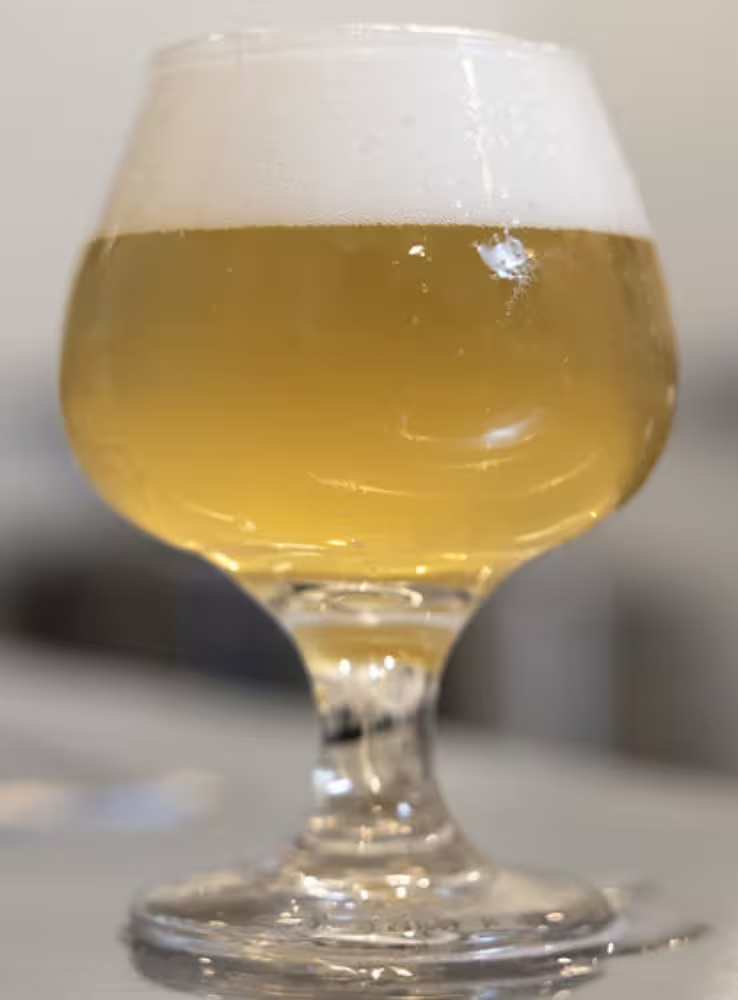5 Minutes
Global Shift Towards Non-Alcoholic Beer: A Science-Driven Trend
The demand for non-alcoholic and low-alcohol beer options has seen remarkable growth among health-conscious consumers worldwide. This evolution, driven by shifting lifestyle choices and a quest for new flavors, has inspired scientists and brewers to rethink traditional brewing ingredients and processes. At the forefront of these breakthroughs is rice, a staple crop now recognized as a promising alternative to barley malt in crafting non-alcoholic beer, according to recent studies published in the International Journal of Food Properties and the Journal of the American Society of Brewing Chemists.
The Chemistry Behind Better Brews: From Pulses to Rice
Beer brewing is much more than an art—it's a dynamic field within food science that leverages biochemistry to shape flavor, aroma, and mouthfeel. Earlier research from Norway demonstrated that sour beers brewed with sugars from pulses such as peas, beans, and lentils could replicate the complexity of Belgian-style sour ales. These variants not only matched traditional flavor profiles but even enhanced lactic acid and fruity notes, all while streamlining the brewing process. Notably, undesirable "bean-like" flavors were avoided, widening ingredient possibilities for innovative brewing.
However, substituting barley malt with rice represents a more radical approach, especially in regions bound by strict legal definitions of beer. For example, Germany's storied Reinheitsgebot, or purity law, requires beer to be made exclusively from malted barley, hops, water, and yeast—a tradition that even applies to alcohol-free varieties. This adherence tends to produce non-alcoholic beers with pronounced "worty" (unfermented malt) flavors due to higher aldehyde content. In contrast, countries like the United States are more permissive, encouraging the use of rice and other adjuncts. In spring 2024, Arkansas passed legislation incentivizing the use of local rice in both sake and beer production—a move reflecting rice's growing significance in beverage innovation.
Expert Perspective: Rice as a Catalyst for Brewing Innovation
"Rice isn’t just neutral filler. It’s a tool for innovation," explains Dr. Scott Lafontaine, a food chemist with the University of Arkansas System Division of Agriculture and co-author of one of the recent landmark studies. He emphasizes, “It’s time we move beyond outdated perceptions and recognize what rice can offer in creating beer that’s sessionable [under 5 percent alcohol], efficient, and aligned with both tradition and today’s consumer preferences.”

Not All Rice Created Equal: The Science of Selection
While rice presents an exciting platform for innovation, not all rice varieties are ideal for brewing. Many cultivars cultivated for culinary uses are selected for high head rice yields and lower glycemic properties, favoring higher amylose content and gelatinization temperatures—the precise opposite needed for optimal brewing. Lower amylose varieties with lower gelatinization points are preferred for efficient sugar extraction during mashing.
Dr. Lafontaine and his research team—working alongside Christian Schubert from Berlin’s Research Institute for Raw Materials and Beverage Analysis—put this theory to the test. They brewed a range of non-alcoholic beers with varying ratios of barley to rice, from 100% barley malt to 100% rice, before subjecting each to detailed chemical analysis and double-blind sensory panels in both the US and Europe.
Sensory Discoveries: Rice Transforms Taste and Mouthfeel
Panelists overwhelmingly rated rice-based beers lower in undesirable "worty" flavors, confirmed by analytical data showing reduced aldehyde presence. Instead, beers brewed with higher proportions of rice often gained attractive vanilla or buttery notes. For brewers seeking a cleaner, more neutral profile, non-aromatic rice types offered further possibilities.
Moreover, increased rice content was linked to a fuller, creamier mouthfeel, likely due to elevated concentrations of larger alcohol molecules that enhance texture—without exceeding the legal alcohol limit for non-alcoholic products.
Cultural Context: Regional Preferences Shape the Future of Brewing
Importantly, flavor acceptance varied between the two continents: American participants were comparatively tolerant of "worty" characteristics, favoring a 70% barley to 30% rice blend. European tasters preferred the opposite, favoring beers with 70% rice, reflecting regional tastes and brewing traditions. Another crucial discovery was that higher rice content accelerated fermentation, thanks to increased levels of readily fermentable sugars such as glucose and fructose.
Optimizing Rice Selection: Maximizing Yields for Sustainable Brewing
A second major study expanded the analysis to 74 rice cultivars, evaluating their extract yields—a critical factor for minimizing grain usage and maximizing cost-efficiency in brewing. The findings? Rice varieties with lower amylose content tended to crack more easily, facilitating optimal sugar release during mashing. These same varieties often exhibited lower gelatinization temperatures, streamlining production and boosting yield.
Such advances may encourage closer collaborations between brewers and rice breeders, ensuring access to the most technically suitable rice for brewing and safeguarding the future of innovative, sustainable, and diverse beer manufacturing.
Conclusion
Scientific research is unlocking new potential for rice as a brewing ingredient, offering solutions that enhance flavor, improve production efficiency, and expand the sensory range of non-alcoholic beers. As legal restrictions loosen across various markets and consumer tastes evolve, rice stands poised to play a transformative role in the global beverage industry. Ongoing collaboration among food chemists, brewers, and agricultural scientists will be pivotal in optimizing rice varieties for brewing, ensuring that non-alcoholic beer continues to evolve in quality, sustainability, and appeal for drinkers everywhere.
Source: arstechnica



Comments